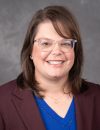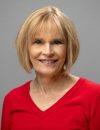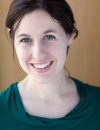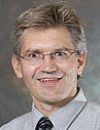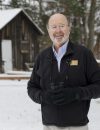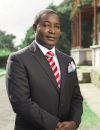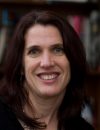UW-Madison’s biggest educational experiment begins Monday.
UW In The News
-
‘I have no money’: debt collection continues despite pandemic
Quoted: “Garnishment is a really important issue, especially for low-income, economically vulnerable families, the exact workers being laid off in the US right now,” said J Michael Collins, faculty director of the Center for Financial Security at the University of Wisconsin-Madison.
-
Pandemics and the Shape of Human History
Quoted: “The discovery of America was followed by possibly the greatest demographic disaster in the history of the world,” William M. Denevan, a professor emeritus at the University of Wisconsin-Madison, has written. This disaster changed the course of history not just in Europe and the Americas but also in Africa: faced with a labor shortage, the Spanish increasingly turned to the slave trade.
-
Why Are Barns In Wisconsin Painted Red?
Quoted: Apps, professor emeritus at the University of Wisconsin-Madison, is the author of dozens of books chronicling rural life in Wisconsin and helped answer Tucker’s question.
-
Bernie Sanders’ Campaign Turns To A New Foe: The Coronavirus
“It’s Sanders’ last stand in electoral politics,” said Barry Burden, director of the Elections Quoted: Research Center at the University of Wisconsin-Madison. “He’s old enough that I don’t think anyone expects him to make another run for the presidency. He may be in his last term in the Senate or near it. Right now, he still has something of a national stage. Once he leaves the campaign, that will be gone.”
-
Working At Home With A Toddler Will Be Chaotic. Here Are Some Tips To Help.
Quoted: In the new-world realities brought on by COVID-19, the disease spread from the new coronavirus known as SARS-CoV-2, early childhood specialist Lorena Mancilla urges parents and guardians to be kind to themselves while figuring out what works.
“Children need regulated, healthy parents more than anything else during this period of social distancing and shelter-in-place orders,” she said. “Life happens. Schedules may not work. It’s okay. Do what you can to keep your children safe.”
-
It’s Easy to Feel Overwhelmed, but It’s Critical to Remember the Good, Experts Say
Quoted: “What we’re facing is unprecedented, and I don’t want to downplay its seriousness, but it’s not the worst-case scenario,” said Malia Jones, a researcher who studies infectious diseases at the University of Wisconsin in Madison.
-
Coronavirus Highlights the Love-Hate Relationship With New York
Quoted: Trump’s insistence on referring to the illness as the “Chinese virus” plays into a central theme of his presidency, experts say, with the president demonizing foreigners. “I think that approach to this whole catastrophe just feeds the culture wars,” says Katherine Cramer, an American Politics professor at the University of Wisconsin-Madison.
-
The GAO told the government in 2015 to develop a plan to protect the aviation system against an outbreak. It never happened.
Quoted: Vicki Bier, director of the Center for Human Performance and Risk Analysis at the University of Wisconsin at Madison, said such scenarios are common, not just in government, but in virtually all industries and organizations.
-
Self-Help If You Display Mild Symptoms of Coronavirus
Quoted: “Stay well hydrated by drinking plenty of fluids. Warm tea with honey and broth soups (yes, chicken soup!) can also be soothing,” Morgan says. The most important thing is to stay hydrated, emphasizes Dr. Jeff Pothof, chief quality and safety officer at UW Health, which is affiliated with the University of Wisconsin-Madison.
-
Here’s What Wisconsin Health Departments Consider Before Releasing Details On Confirmed COVID-19 Cases
Quoted: Even in communities where no one has tested positive, it’s important people avoid contact as much as possible, said Alta Charo, a professor of law and bioethics at the University of Wisconsin-Madison. Charo cited recent information coming out of Iceland, which claims to have tested a larger percentage of its residents than any other country, showing only about 50 percent of people with the virus felt symptoms.
-
‘On My Own’ Author discusses her new book on community college STEM transfer students — and the challenges they face amid the coronavirus.
Community college transfer programs face challenges both at their home institutions and at the institutions to which students want to transfer. Add STEM to the equation and the challenges grow. Xueli Wang, a professor of higher education at the University of Wisconsin at Madison, explores those challenges and the way students meet them in On My Own: The Challenge and Promise of Building Equitable STEM Transfer Pathways (Harvard Education Press). The book follows 1,670 community college students for four years as they transfer to four-year institutions.
-
Can he do that? The law (and history) behind the governor’s emergency powers
Quoted: “One thing to keep in mind, particularly during a crisis like this, is that state actors and governors in particular can often just act more swiftly and more nimbly than the federal government can,” University of Wisconsin Law School professor Miriam Seifter said.
Seifter studies administrative law and constitutional law; much of her recent work has focused on the powers of state leaders.
-
Wisconsin Farmers Brace For Impact Of Coronavirus
Quoted: Mark Stephenson, director of dairy policy analysis at the University of Wisconsin-Madison, said he doesn’t think the agriculture industry has seen the full impact of the pandemic yet.
-
Vaccines Won’t Work for Some Coming Health Threats, Like Climate
Quoted: Environmental degradation has already been identified as a cause of the Covid-19 pandemic. China’s wildlife markets—where both live and dead animals are bought and sold in tight quarters—likely allowed viruses to mix across species, creating conditions “ripe for new emerging agents of disease, like Covid-19,” said Jonathan Patz, director of the Global Health Institute at the University of Wisconsin-Madison.
-
Daily meditation could slow aging in your brain, study says
A recently pubished 18-year analysis of the mind of a Buddhist monk by the Center for Healthy Minds at the University of Wisconsin-Madison found daily, intensive meditation slowed the monk’s brain aging by as much as eight years when compared to a control group.
-
So long, lecture halls: UW-Madison professors shift to online classes amid COVID-19 crisis
-
UW researchers study COVID-19 coronavirus to try to develop treatments, vaccines
In his UW-Madison lab, Adel Talaat developed an experimental vaccine to protect chickens from coronavirus. When the pandemic of a different strain arose in people late last year, Talaat used his technique to create a vaccine candidate for humans.
-
The Urgent Battle To Flatten Wisconsin’s COVID-19 Curve
Quoted: “It is a fundamental principle of outbreak control to slow transmission,” said Dr. Patrick Remington, an epidemiologist and professor emeritus at the University of Wisconsin-Madison School of Medicine and Public Health.
-
How to Triage Patients Who Need Intensive Care
“A lot of times, medical professionals are really focused on making this one decision for the patient who is right in front of them,” says Laura Albert, a systems engineer at the University of Wisconsin–Madison, who was not involved in the study.
-
How to Build an Emergency Fund in the Middle of an Emergency
Quoted: Loans aren’t taxable but must be repaid, and they can be risky because if you leave your employer you generally have to repay the loan quickly, said J. Michael Collins, director of the Center for Financial Security at the University of Wisconsin-Madison.
-
Can Pets Contract Or Transmit COVID-19? A Virologist Answers Your Household Pet Questions
WHYsconsin has received numerous questions from audience members about COVID-19 and we are working to answer them. Here are the answers to some of those questions you have submitted. WPR’s Mary Kate McCoy spoke with Kristen Bernard, a virology professor at the University of Wisconsin-Madison, to answer some of your questions.
-
Coronavirus pandemic: 8 ways to stop spread of COVID-19 misinformation
Quoted: “This is a moment where misinformation can have real consequences, beyond what we have seen in elections,” says Dhavan Shah, the Louis A. & Mary E. Maier-Bascom professor at the University of Wisconsin-Madison, director of the university’s Mass Communication Research Center and scientific director of the Center for Health Enhancement System Studies. “This is a moment where misinformation can have life-and-death consequences.”
-
Of course the rich are getting tested first. The wealthy always do better during a pandemic.
Quoted: “The wealthy have often done better than the poor when faced with epidemics and pandemics because they tend to be resilient as a function of having greater resources,” says Richard Keller, a professor of medical history and bioethics at the University of Wisconsin-Madison.
-
How to talk to kids about the coronavirus pandemic
Coronavirus is something kids are likely to be asking about a lot. When it comes up, Travis Wright, an associate professor of counseling psychology at the University of Wisconsin-Madison, said he recommends allowing the kids’ questions and concerns to guide the conversation. That way, you won’t inadvertently introduce fears that they didn’t already have.
Also quoted: “They can take over-the-counter medications and they will do just fine,” said Dr. Jeff Pothof, chief quality officer for UW Health. “I know people are worried about our kids. If we’ve got anything going for us, it doesn’t appear that COVID makes children too sick.”
-
What Does the Covid-19 Economy Look Like? Chicken Prices Might Hold a Clue.
The outbreak could cut the country’s annual gross-domestic-product growth by half, said Ian Coxhead, an economist who studies Asian economies at the University of Wisconsin-Madison. But he cautioned that making such projections is difficult.
-
Wisconsin Bans Crowds Of 10 Or Larger; Order Bars And Restaurants Closed
Quoted: Dr. Patrick Remington, the director of the University of Wisconsin-Madison Preventive Medicine Residency Program, said many people who work in the service industry are now “basically unemployed.”
-
Diabetes And The Coronavirus: An Endocrinologist Answers Your Questions
Quoted: Wisconsin Public Radio and Wisconsin Watch compiled your questions and sought answers from Dr. Dawn Davis. She is director of the Comprehensive Diabetes Center at the University of Wisconsin-Madison and section chief for Endocrinology at the William S. Middleton Memorial Veterans Hospital in Madison.
-
Growing old with autism
Quoted: “Looking at health in older adults with autism can tell us something about the result of a lifetime of the lived experience of being autistic, of the discrimination that comes with being autistic,” says Lauren Bishop, assistant professor of social work at the University of Wisconsin-Madison
-
‘It feels so final’: UW extends online coursework through spring, announces leave policy
As University of Wisconsin-Madison students left town for spring break last week, they expected to be gone for a bit longer than usual to help prevent the spread of COVID-19. But on Tuesday, they were forced to quickly come to terms with a new announcement: there will be no more in-person instruction this spring.
-
How to use Airbnb, Uber and other apps during coronavirus
Quoted: “We’re saying that social distancing is the only thing that we know of that has the potential to blunt the curve of this pandemic,” says Nasia Safdar, the medical director of infection control at the University of Wisconsin Hospital and Clinics.
- Newer stories
- Page 62 of 140
- Older stories
Featured Experts
Noelle LoConte: Pancreatic Cancer Awareness Month
Pancreatic cancer is one of the most difficult cancers to prevent, diagnose or treat. Earlier this month, music legend Quincy… More
Kathleen Glass: Food safety
Food is an integral part of Thanksgiving. And who doesn't love leftovers? But after how long should you leave those… More
Cecelia Klingele: Body-worn cameras by police
Madison Police Chief Shon Barnes is requesting that the city fund widespread use of body cameras for officers in the… More
Jonathan Temte: The seasonal flu shot
Family medicine professor Jonathan Temte is available to discuss this year's updated seasonal flu shot and flu prevention and control. More
Stanley Temple: Fall phenology
The days have finally started getting cooler and we all know winter awaits. Stanley Temple, an expert on birds, wildlife, endangered… More
Alvin Thomas: Movember and Men's Health Month
You might see more facial hair this month as Movember goes into full effect, drawing awareness toward men's health. Alvin… More
Dominique Brossard: Vaccine hesitancy
With a new administration poised to take power in January, a change in policy regarding vaccines may also be on the way.… More

